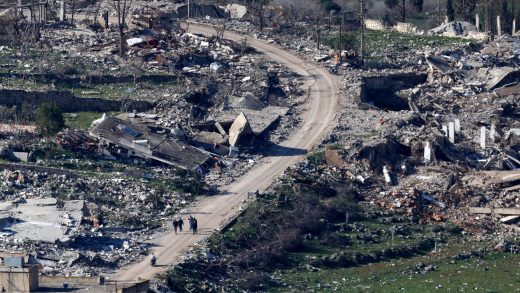MONTREAL – Shirley Pien spends a lot of time in Cabot Square, a park in downtown Montreal where many homeless people gather.
The woman works as health navigator for an Indigenous-led health clinic in the city and makes it a priority to come to gathering spot on weekly basis. It’s a site many missing Indigenous women she knows used to frequent — until they disappeared.
“In the last few months, there’s women we used to see regularly that we don’t see anymore. Nobody knows where they are,” said Pien, who hails from Naskapi Nation in northern Quebec.
She was among many that turned out to the march held in Montreal on Saturday in recognition of the overrepresentation of missing and murdered Indigenous women and girls in the country.
“Hopefully one day, people will hear us and start to do something about it,” Pien said, adding that Montreal police haven’t done enough to respond to the disappearances.
The march was one of several events that happened across Canada on Friday and Saturday in recognition of the national day of action, held every Oct. 4.
Organizers behind the protest in Montreal say all levels of government have failed to implement the recommendations from a 2019 national inquiry into missing and murdered Indigenous women and girls, which declared the matter a crisis.
Related Videos
That inquiry concluded that “persistent and deliberate” human rights violations are to blame for the high rates of violence faced by Indigenous women, girls and two-spirit people.

Get weekly health news
Receive the latest medical news and health information delivered to you every Sunday.
A total of 231 calls to justice came out of it, including many aimed at governments and social service providers.
Few of the calls have been met, organizers of the protest said, which included a local native women’s shelter and an association representing Inuit people across southern Quebec.
Simone Page leads a team at a shelter that advocates for families looking for their loved ones.
She said sex trafficking is a major issue among unhoused Inuit and other Indigenous women in the city. Those that frequent the area around Cabot Square are routinely targeted by traffickers that conceal their intentions by approaching them romantically or as a friend, she said.
Hotels for medical patients and Montreal’s airports and bus terminals are also areas where Indigenous women are sought ought, she added.
When these women go missing, police don’t always respond as quickly as they should, she said. In her experience, she’s noticed it’s common searches only begin 24 hours to 48 hours after a missing is reported.
“Those first 24 to 48 hours are essential, especially when it comes to trafficking,” Page told The Canadian Press.
Native Nam, an author an artist from Kitigan Zibi in Quebec’s Outaouais region, said she believes the number of missing and murdered Indigenous women reported by the authorities doesn’t match reality.
“Activist groups suggest the true numbers could be much more,” she told the crowd gathered. “These are not just numbers. These are our daughters, mother, aunties, and cousins, they are us.”
In a statement issued Saturday, the federal ministry for Crown-Indigenous Relations and Northern Affairs said it remains committed to putting an end to the national crisis.
“The most important work is being led by Indigenous peoples at the community level,” said ministers Rebecca Alty, for Crown-Indigenous Relations, Mandy Gull-Masty, for Indigenous Services, Rebecca Chartrand, for Northern and Arctic Affairs, and Rechie Valdez, for Women and Gender, in the statement.
The statement mentioned funding that’s been committed toward shelters and other projects aimed at improving community safety as part of Canada’s response to the crisis.
In August, Canada committed $8.5 million to establish transitional housing units for Métis women and children in St. Andrews, Man., for instance, they said.
The government has hosted Indigenous, federal, provincial and territorial gatherings to talk about the crisis, has created a national action plan to end gender-based violence, and has also appointed a chief adviser to combat human trafficking in the country, the ministers also highlighted.
This report by The Canadian Press was first published Oct. 4, 2025.
© 2025 The Canadian Press






